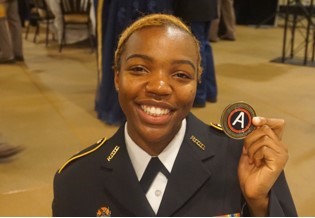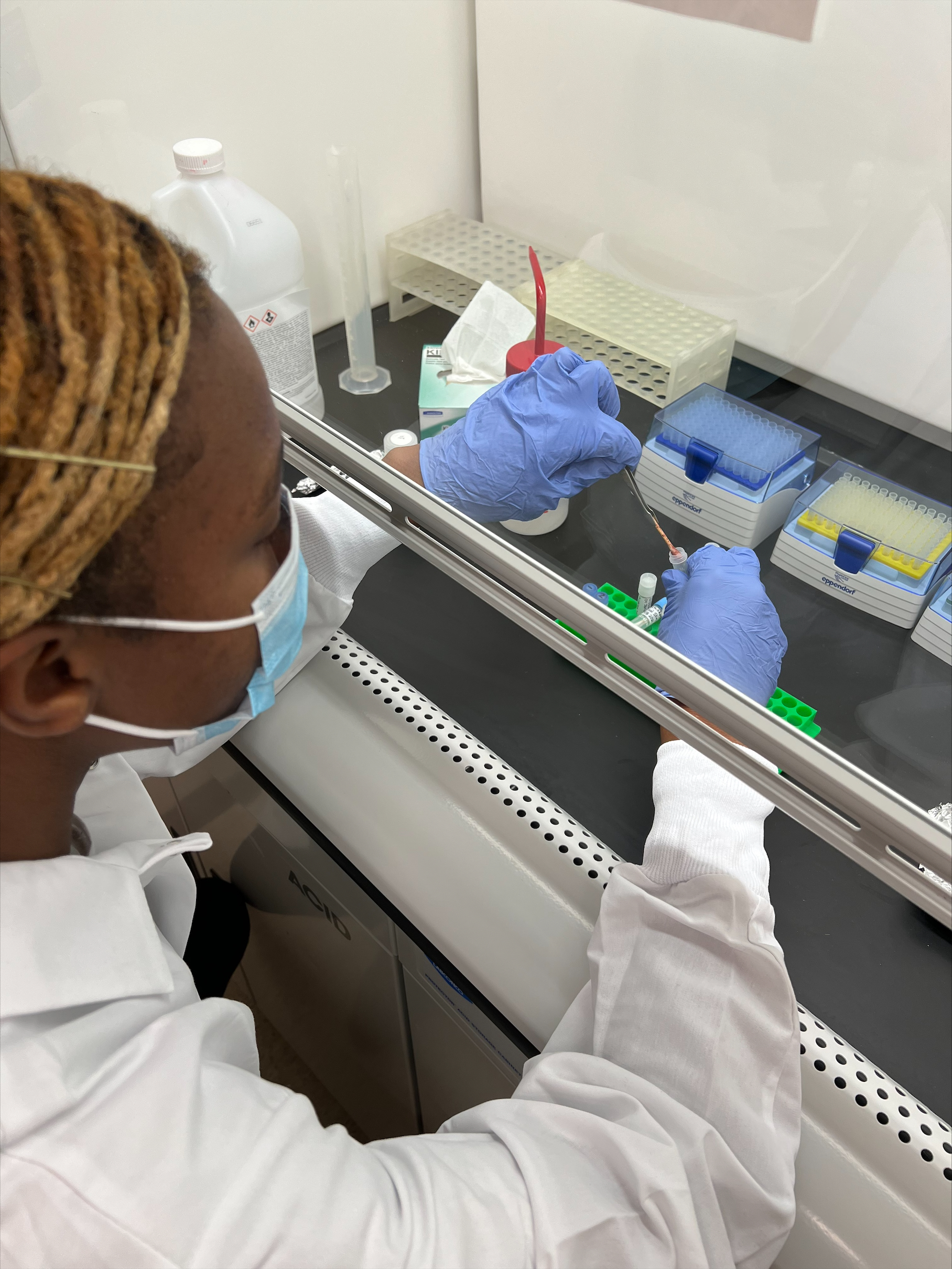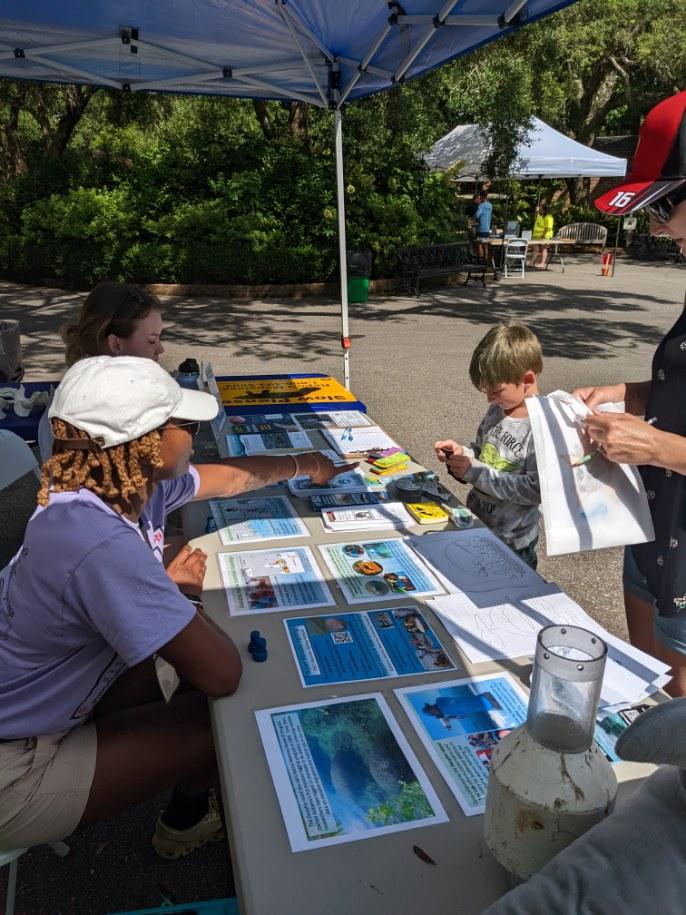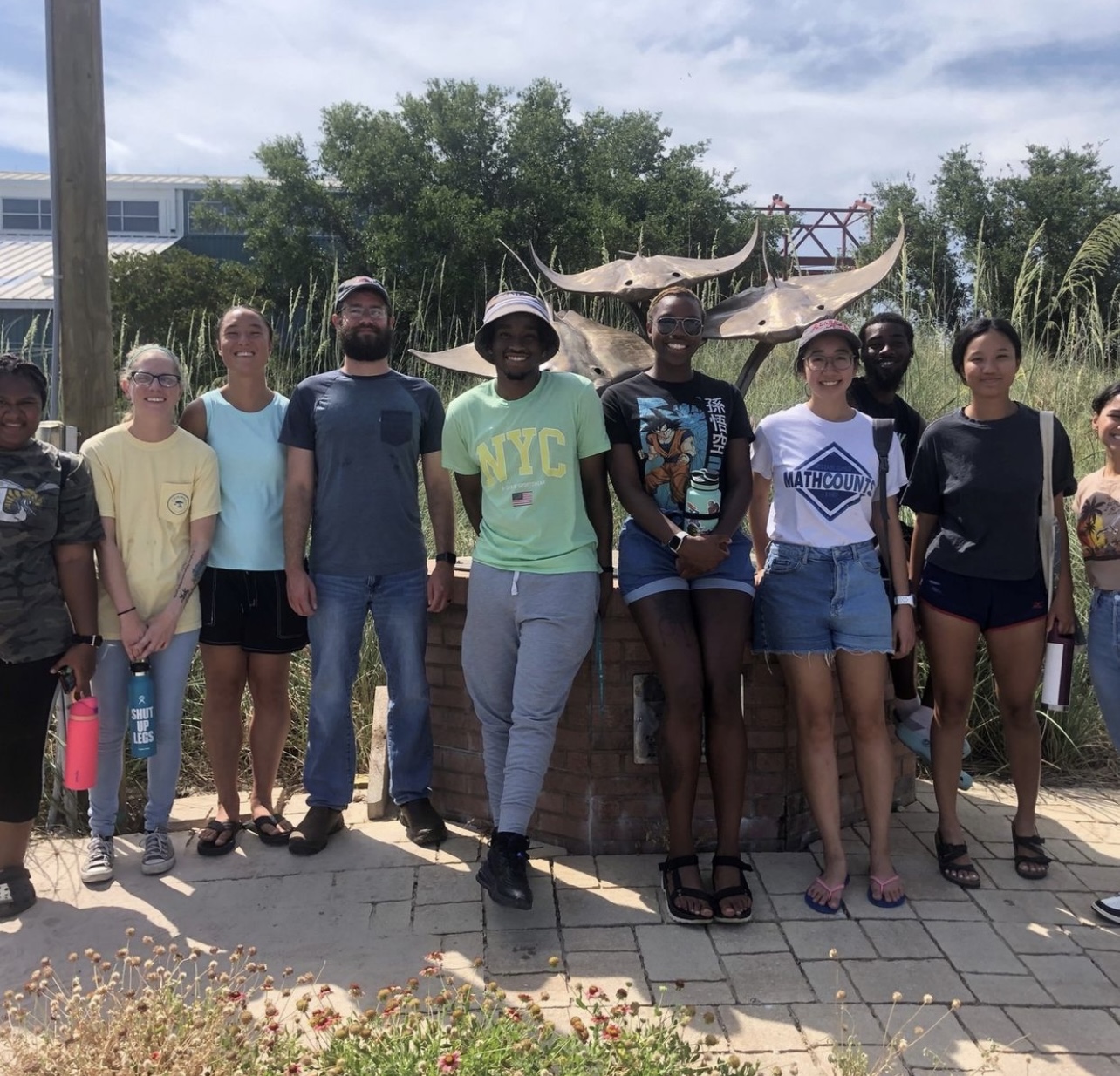COSAM News Articles 2022 September Catching up with Yasmine Hall: How the Dauphin Island Sea Lab undergraduate research experience bolstered her research, lab and presentation skills
Catching up with Yasmine Hall: How the Dauphin Island Sea Lab undergraduate research experience bolstered her research, lab and presentation skills
This past spring, Yasmine Hall, a sophomore majoring in microbiology with a pre-vet concentration, learned of her acceptance into the 2022 Dauphin Island Sea Lab Research Experience for Undergraduates Program, or DISL REU.
In a May 2022 COSAM Today article, Hall shared information about the DISL REU program and discussed her academic goals for the experience as she planned for an enriching summer.
Following her DISL REU experience, Hall shared key takeaways as a program participant—gaining practical knowledge in research, lab and presentation skills while experiencing a summer of a lifetime.
Q: You recently completed the Dauphin Island Sea Lab Research Experience for Undergraduates, or DISL REU, from May 30 to August 5 in Dauphin Island. Can you tell us what type of activities you participated in during the program?
A: In the beginning, most of my days were spent in the lab prepping samples to be sent off for further processing. Towards the end, my typical day transitioned to being in the Marine Mammal Research Center putting together pieces of my research project. However, I was able to be involved in a lot of activities outside of my work, such as helping respond to a dolphin stranding with the Marine Mammal Stranding Network, assisting in necropsies, helping with dolphin photo identification projects and other activities in other labs. I even got to visit the Institute for Marine Mammal Research in Mississippi and got a behind the scenes tour!
Q: Tell us about the DISL REU collaborative experience and networking opportunities. What was the experience like with your mentors, microbial ecologist Brandi Kiel Reese and aquatic mammal veterinarian Jennifer Bloodgood? Did you also get to network with students from other institutions during the program?
A: Science is very interdisciplinary, and it was really interesting to see it firsthand. I loved working with both Dr. Bloodgood and Dr. Kiel Reese, especially since their fields seem so drastically different, yet they both came together to work on my project. They are both very knowledgeable in their fields and I had a great time learning from them. I also met students from different school across the country. A few of us were from Alabama, but there were also students from California, Texas, and Florida!
Q: How do you feel you’ve grown in your research skills and other skills related to microbiology and veterinary pathology after participating in the DISL REU program?
A: The program taught me so many things about the science and research realms. The mentors guided me to the point where I could be confident enough to do things like DNA extraction, PCR and gel electrophoresis on my own. My favorite skills I gained were involved with presentation skills. I learned how to make a scientific poster and present my findings in a way that someone who was unfamiliar in the research could understand.
Q: As you enter your sophomore year, how do you plan to apply this REU experience to your studies and research in veterinary and microbial science?
A: From the REU experience, it helped me set more specific future goals. Currently, I would like to use my gained research experience and put that forward by working in another lab or veterinary clinic.
Q: Would you recommend other COSAM students apply to similar undergraduate research opportunities like DISL REU?
A: I absolutely would recommend for other students to apply to similar programs. A lot of the graduate students working in the labs mentioned how they wish they could have gained research experience the way we were as an undergraduate. Doing REU programs is a way to possibly get a publication under your belt and to get a publication as an undergraduate can really set you apart from your peers. Once you graduate, it will be easier to find jobs and labs to work in because you would have already been gaining experience in the lab environment.
Latest Headlines
-
04/23/2024
-
04/18/2024
-
04/18/2024
-
04/18/2024
-
04/17/2024




